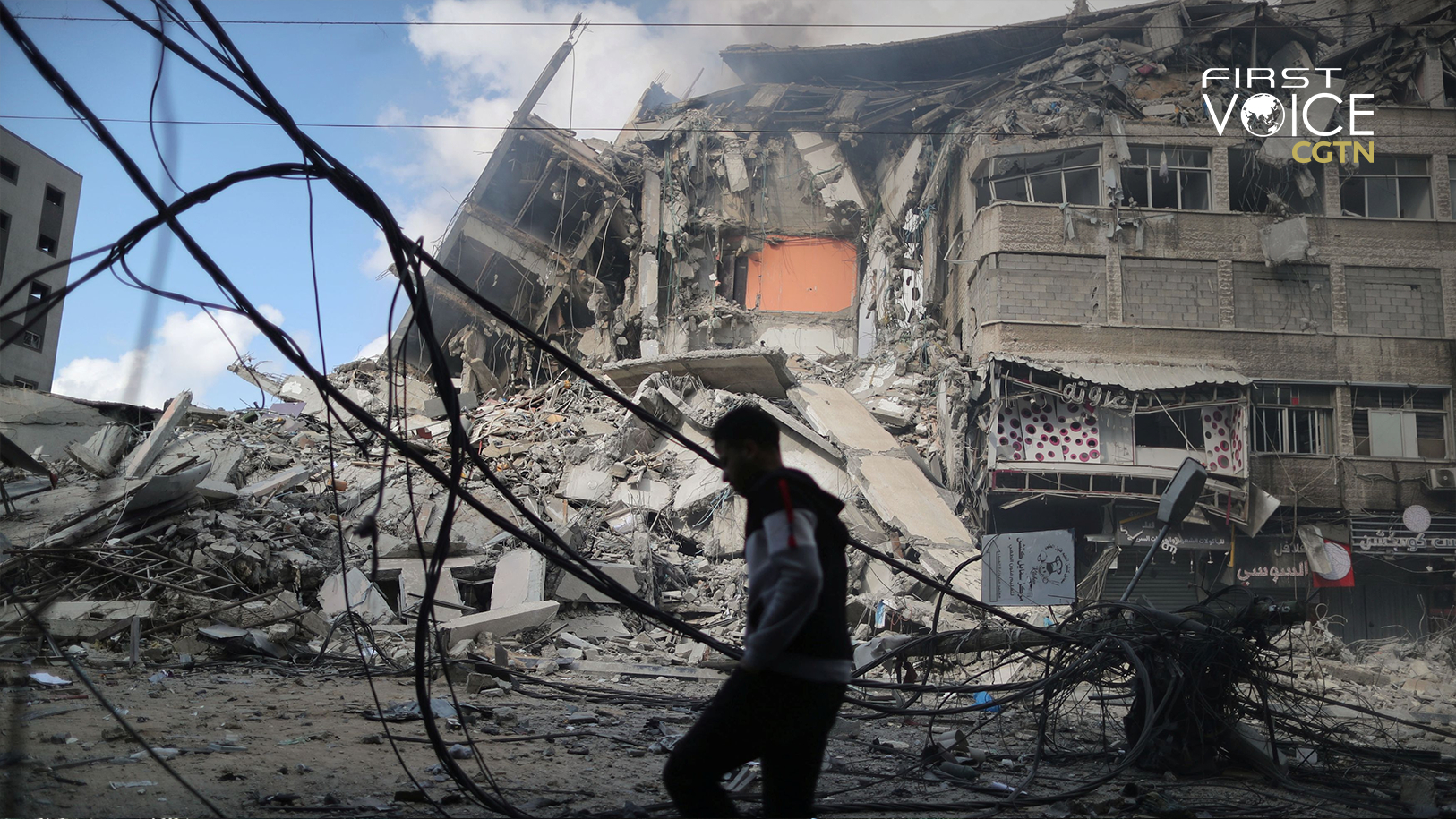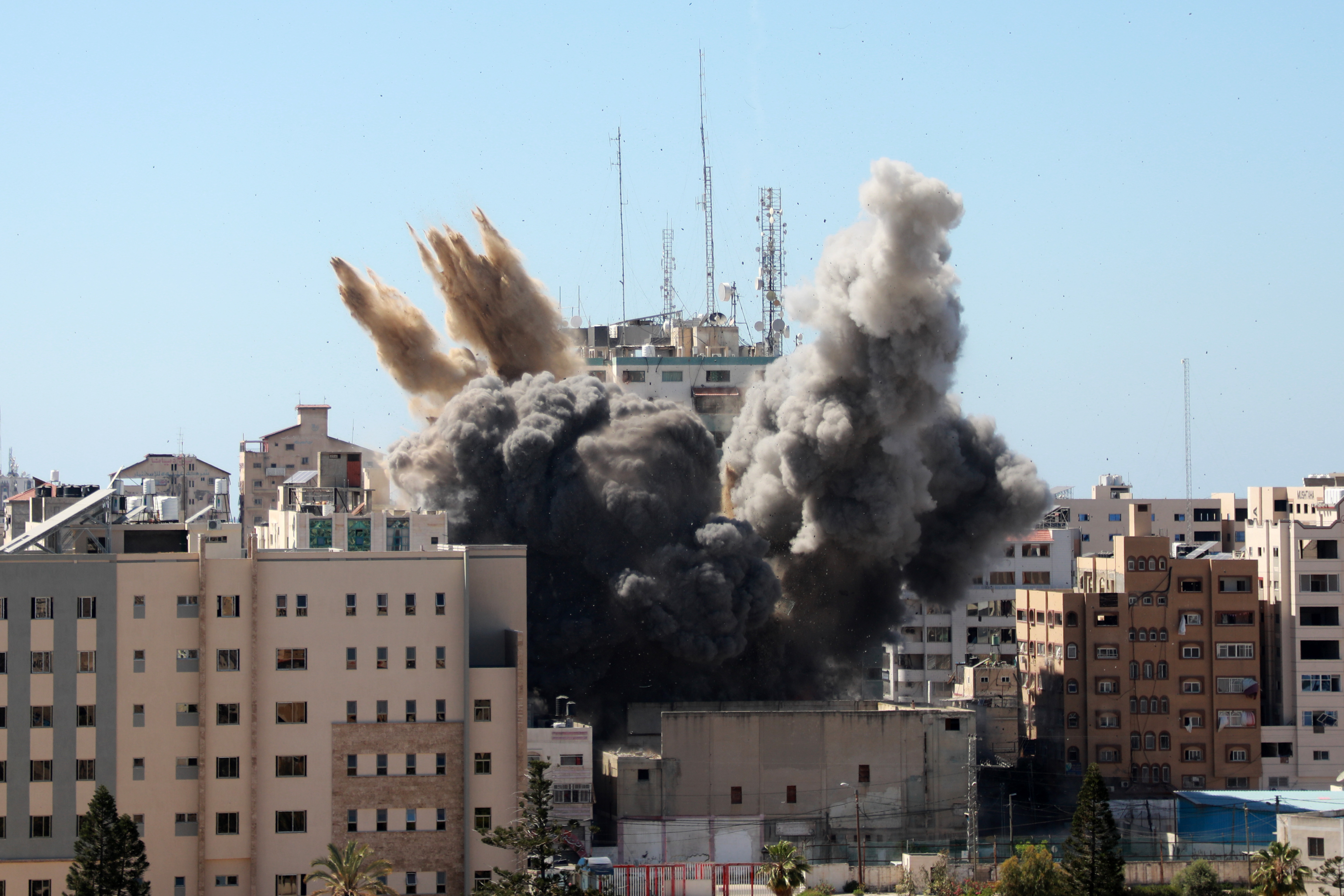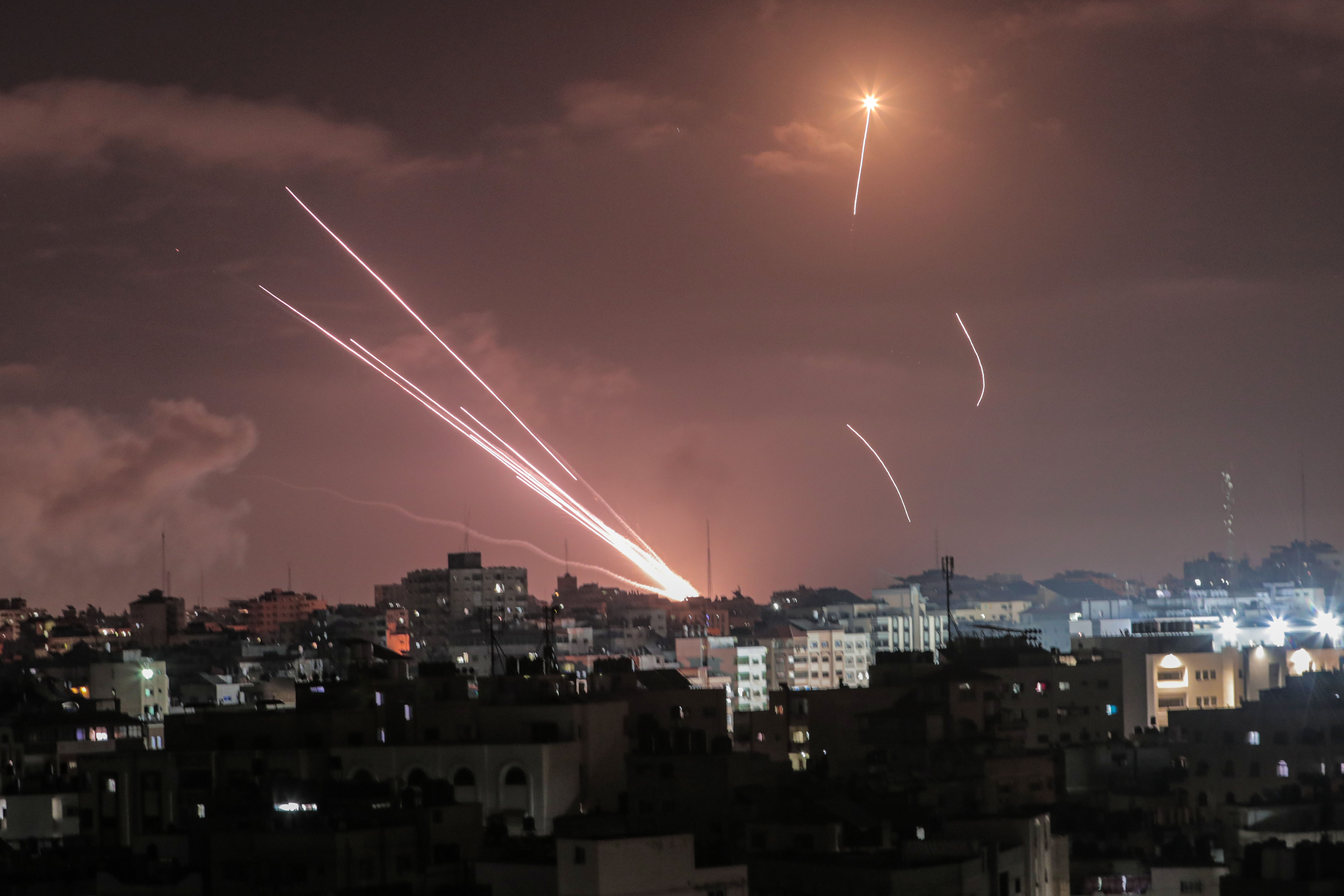
Editor's note: CGTN's First Voice provides instant commentary on breaking stories. The daily column clarifies emerging issues and better defines the news agenda, offering a Chinese perspective on the latest global events.
The current Israeli-Palestinian conflict is on the verge of spiraling out of control. Calls for peace are deafening but unheeded.
Why?
For many, the escalating tension between Israeli and Palestinian is very much a repeat of what the two neighbors have been experiencing for some time.
"The unfortunate reality in that neighborhood is that this type of thing happens every few years," said Matthew Brodsky, senior fellow at the Gold Institute for International Strategy in Washington D.C. The cycle of violence between the two – filled with religious conflict, the threat to survival and proxy influence – has defined a large portion of Middle East modern history.
But how far the current conflict will go will largely rests upon how the crisis shapes their domestic political environment. The New York times Columnist Thomas L. Friedman wrote in his May 16 article that both sides' leaders have been using this opportunity to achieve a common goal of preventing "an unprecedented national unity government from emerging in Israel – a cabinet that for the first time would have included Israeli Jews and Israeli Arab Muslims together."

A thick column of smoke rises from the Jala Tower as it is destroyed in an Israeli airstrike in Gaza city controlled by the Palestinian Hamas movement, May 15, 2021. /Getty
A thick column of smoke rises from the Jala Tower as it is destroyed in an Israeli airstrike in Gaza city controlled by the Palestinian Hamas movement, May 15, 2021. /Getty
For Palestinian people, the deaths and destruction done to them would be hard to forget or forgive. According to various accounts, at least 200 people are killed in Gaza, including 58 children in the current conflict. The overnight bombardments in Gaza stirs up strong anti-Israel sentiment online and in Palestine. One Twitter user asked: "Imagine kids living there, how are they feeling? Hearing the voices of the bombs all the time and expecting death every second."
Then, there's Israel's greatest patron – the United States. Or specifically speaking, a United States where inter-party and intra-party factions are all having different opinions and political leanings when it comes to the Israeli-Palestinian conflict.
U.S. President Joe Biden once said to Netanyahu that "Bibi, I don't agree with a damn thing you say, but I love you," according to POLITICO. If this wasn't illustrative enough of their relationship, Biden assured Netanyahu of U.S. support on May 12 and told reporters that "Israel has a right to defend itself," a talking point that drew international outcry after his Secretary of State Antony Blinken tweeted it.
But a growing portion of the Democratic Party doesn't feel that warmth towards Israel. Representative Alexandria Ocasio-Cortez, a firebrand young democrat, commented on Biden's position as reinforcing "the false idea that Palestinians instigated this cycle of violence" and claimed that "this is not neutral language. It takes a side – the side of occupation."
On the flip side, the Republicans are lamenting that Biden isn't doing enough to support Israel. Forty-two Republican Senators sent a letter to Biden calling on him to not lift sanctions on Iran due to Hamas attacks on Israel. And After Democratic Representative Ilhan Omar called Israel strikes an "act of terrorism," Republican Senator Marco Rubio fired back with "she's out of her mind."

Rockets light up the night sky as they are fired towards Israel from Beit Lahia in the northern Gaza Strip on May 14, 2021. /Getty
Rockets light up the night sky as they are fired towards Israel from Beit Lahia in the northern Gaza Strip on May 14, 2021. /Getty
Biden cannot afford to alienate any faction and diminish his thin political capital. The United States has repeatedly shut down United Nation Security Council's effort to meet and discuss the conflict to avoid making any solid international commitment. It only gave in after intense international pressure. Even then, the UNSC wasn't able to issue a statement because the U.S. was "focused on the intensive diplomatic efforts underway."
U.S.' security guarantees for Israel emboldens the country's militant actions against Palestine, which would certainly be met with counter-attacks from Palestine. As the conflicts could serve to extend the political life of both Israeli and Palestinian leaders, the tempts of violence is greater than the incentives for peace, at least at the moment. As violence goes on, public sentiment against each other grows more intense, making a course change more difficult even if the leaders intend to cool tensions.
Playing with rockets is more than just playing with fire. There's a point of no return leading to every war, and a war in the Middle East is the last thing the international community needs right now. So perhaps it is good for everyone to get their heads out of domestic politics once in a while and stop this dangerous spiraling in its tracks.
Scriptwriter: Huang Jiyuan
(If you want to contribute and have specific expertise, please contact us at opinions@cgtn.com.)

